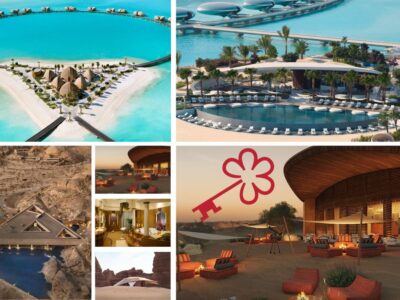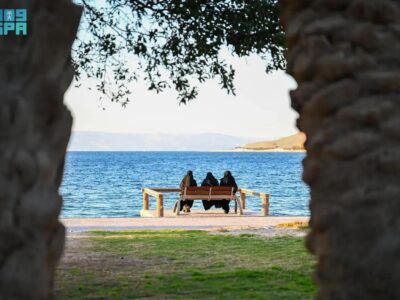The Kingdom is looking to counter its reliance on the oil market by developing its meeting and conference offering.
Saudi Arabia is not renowned for being the destination of choice for meetings, incentives and events in the Middle East.
The Kingdom’s staple business is religious tourism and preconceptions remain that the country is hard to access and that options when there are limited – particularly for incentives.
The vision of the government is to develop the meetings and incentive product.
Nevertheless, Saudi Arabian officials are viewing tourism as a major source of hard currency and a way of diversifying its oil dependant economy.
Vast sums are being spent on developing the infrastructure of the country and world-class airlines such as Emirates Airline, Etihad Airways and Qatar Airways have increased the number of flights to and from Saudi Arabia.
There have also been attempts to improve access with a number of inbound tour operators licensed to issue visas.
Furthermore, theme parks and other tourist attractions are being developed on a massive scale with the aim of attracting leisure and incentive tourism.
As a result, Saudi Arabia’s efforts to compete with its Middle Eastern neighbours in attracting its share of tourism are paying dividends.
According to Euromonitor International, a global market research company, KSA inbound tourism is expected to rise by 37% to reach more than 13 billion visitors by 2011.
With this in mind, many high-end international hotel chains have seen the potential in the Kingdom, many slating properties for the coming years.
Mövenpick Hotels and Resorts is one of them.
“Saudi Arabia is an important destination for us not only because of the massive investment in infrastructure, but, more importantly, the vision of the government to develop the tourism product and with it the meetings and incentive product,” says general and regional manager Anwar Al Madinah Mövenpick, Madinah and Mövenpick Hotel & Residence Hajar Tower, Makkah, Adel Bibars.
The increasing demand for corporate and government conferences, particularly in Riyadh, has created a need for more five-star properties and Bibars says the higher spend of the business traveller means demand for luxury accommodation will remain high.Significant commercial activities in the Kingdom are attracting international and multinational companies, which is another reason Mövenpick will be adding to its portfolio of properties in The Kingdom Bibars says.
“To cater to the rising meeting and incentive market we have properties in Makkah and Yanbu opening this year and a fourth hotel in Riyadh opening in 2009,” he explains.
The Rezidor Hotel Group is a management company that operates four Radisson SAS properties located in Riyadh, Yanbu and two properties in Jeddah, but there are plans for further expansion in the Kingdom, according to regional director sales and marketing, Rezidor Hotel Group, Craig Senior.
“We are also expanding the Radisson SAS brand into Al Madinah and Mekkah. In addition to the Radisson SAS brand we are also developing the Park Inn brand and these hotels are currently under construction in Al Khobar and Olaya in Riyadh,” he explains.
“Due to the fact our hotels are located in the primary cities in the Kingdom of Saudi Arabia, our core segment is the business individual traveller visiting from the main feeder markets within the GCC and the main European destinations,” he adds.
Conferences
Riyadh Exhibitions Company (REC) has helped the government’s drive to promote meeting industry tourism by hosting a number of specialised conferences in collaboration with relevant ministries.
And with the government investing most of its excess oil revenues on infrastructure development there is a need for conference and exhibition centres to play their parts, according to a spokesman for REC.
“The Saudi Arabian Government, through its various ministries is continuously taking initiatives towards involving the private sector in organizing events and offering large support,” he says.
“This entails getting the expertise and know how through encouraging the meeting and conference business, which attracts wide interest from international speakers and experts,” he adds.
Saudi officials are certainly making the right noises about securing meeting industry business, but there is still a lot of competition on its doorstep.
Despite the ambitious rivals, confidence is high that Saudi Arabia will eventually become a major player in the meeting industry.
“Being the GCC’s largest market and one of the largest in the world, Saudi Arabia is inevitably a major destination in the Arab world for meetings and conferences,” the REC spokesman says.
The plan is to continue developing and diversifying Saudi’s portfolio in trade fairs and to focus on organising more specialised conferences and events.
“Of course we cannot be very ambitious in the very near future to beat neighboring Dubai and Bahrain, but one can be very optimistic that in the coming few years Saudi Arabia will become one of the most sought after destinations for conferences and meetings in the region,” he concludes.







